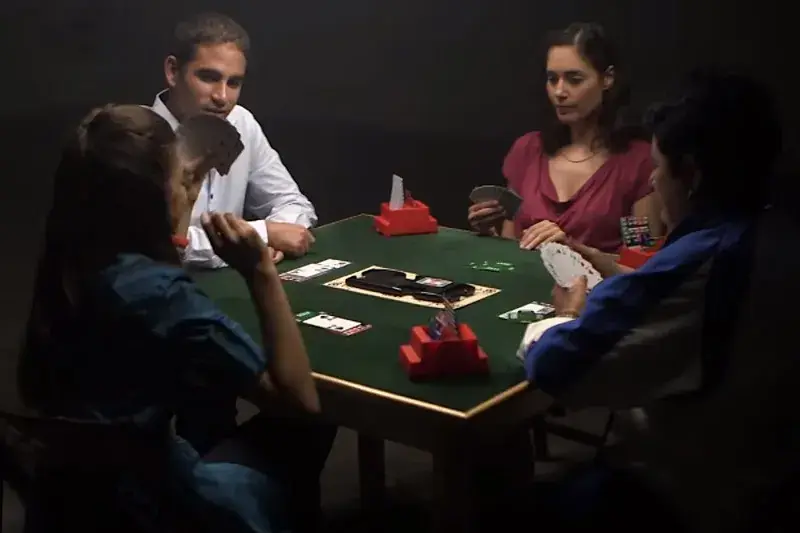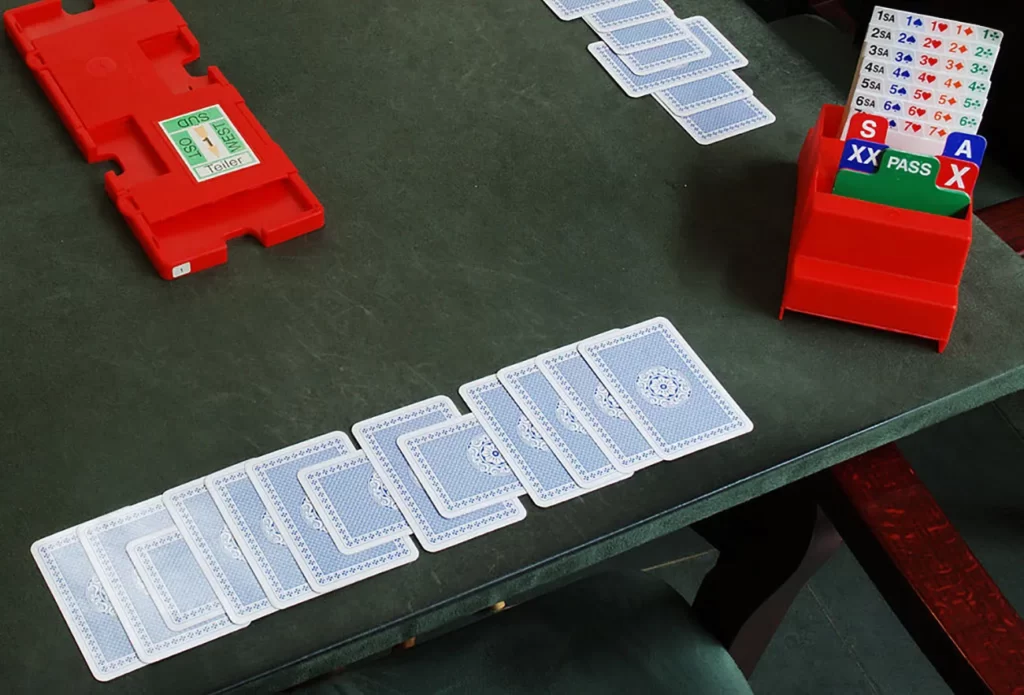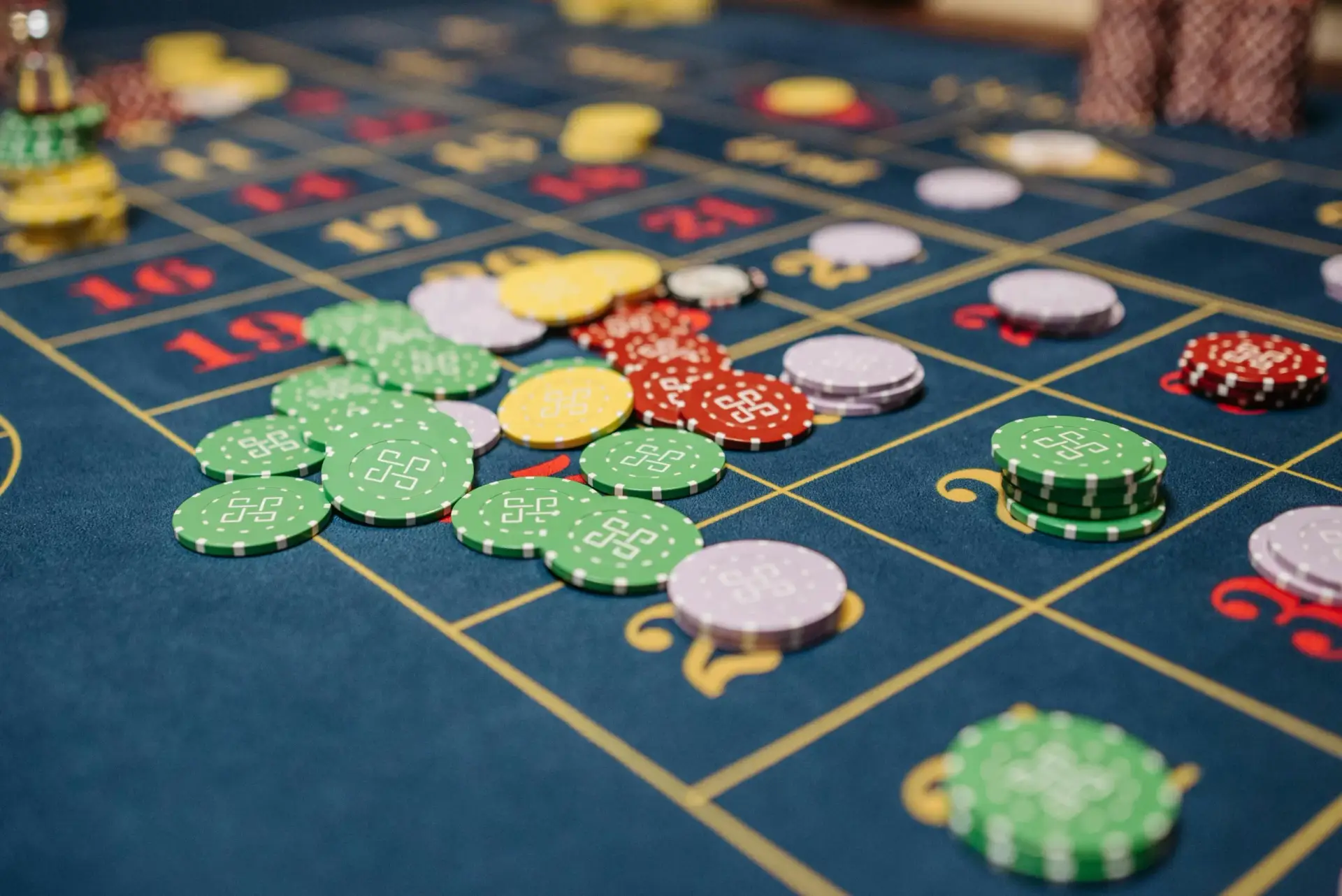Bridge is said to be a true intelligence sport that develops thinking and strategic skills. In this sport, everything depends not on luck but on the knowledge and experience of the player. This fascinating pastime unites millions of people around the world, offering difficult challenges and great opportunities for self-improvement. The rules of sports bridge are easy to learn if you approach the process with the right attitude and spirit.
Sport bridge: what it is and how to play it
What is sport bridge? It is a card game that combines strategy, logic and social interaction. Imagine a table with four participants, each armed with 13 cards, and the goal is to take as many bribes as possible and build a winning contract. This intensive process requires not only understanding the rules of sports bridge and your own combinations, but also anticipating the actions of your opponents and your partner.

The history of bridge begins at the end of the 19th century, when card games began to evolve from a simple pastime to a real intellectual challenge. Today, sports bridge is considered one of the most complex sports when it comes to rules and prestigious competitions, and international tournaments bring together thousands of participants and spectators.
How to prepare psychologically for the game of bridge?
Psychological preparation plays a fundamental role. It is important to prepare to win while remaining mentally flexible. The secret to success lies in the ability to stay calm and think rationally, even under pressure.
Here are some techniques to achieve this:
- Breathing exercises: breathe in and out deeply before you start the competition. This helps to calm the nervous system and prepare you for concentration.
- Visualise success: visualise yourself confidently leading the session, making the right moves and achieving victory. This helps build confidence and avoid stress.
- Relaxation techniques: during breaks, use relaxation techniques such as stretching or meditation to reduce tension.
Mental resilience is what separates a good player from a great player. Therefore, no matter how often you lose or win, it is important to maintain an even emotional state and learn from every game.
Bridge fundamentals
The fundamentals include some key terms that help beginners get up to speed faster:
- Contract: A commitment made by participants to win a certain number of bribes. The contract determines how many bribes players must take to win the round.
- Bribe: A combination of cards played in a round where each card belongs to a different player. The highest card of the corresponding colour is the card that gets the bribe.
- Declarer: the player who wins the right to play the contract and his partner becomes the ‘dummy’ or ‘responder’.
- Responder: partner of the declarer who reveals his cards and these are played by the declarer.
Basic rules of sports bridge
 The session consists of four people divided into two teams of two. The pairs sit opposite each other and are each dealt 13 cards from a 52-card deck. The rules of sports bridge require the full use of all cards in play, making each game unique and unpredictable.
The session consists of four people divided into two teams of two. The pairs sit opposite each other and are each dealt 13 cards from a 52-card deck. The rules of sports bridge require the full use of all cards in play, making each game unique and unpredictable.
The game is played in two stages: bidding and dealing.
- Bidding: Participants bid to determine the contract. Each player in turn declares how many bribes his team will take by naming the colours or declaring that there is no trump.
- Draw: Once the contract is determined, the draw begins. One partner (declarer) plays the cards while the other partner (responder) puts his cards on the table, allowing the declarer to check both hands.
Quick guide to playing strategy
Success depends on the ability to analyse your hand and predict your opponents’ actions. A few basic strategies will help you improve your results:
- Analyse your hand: before the start of each game, assess the strength of your cards. Cards with higher suits (aces, kings, queens) have more value and you should take this into account when developing your strategy.
- Observe your opponents: Observe your opponents’ behaviour. Note the cards they play so you can deduce which cards they still have in their hand.
- Signal your partner: Use the signals you receive to relay information to your partner. Certain cards, for example, may indicate that you have a strong suit, allowing your partner to adjust his or her tactics.
Playing sports bridge effectively means not only playing your cards according to the rules, but also anticipating your opponents’ actions. For example, if your partner plays a low card, this may indicate the presence of stronger cards in that suit, giving you confidence in your next moves.
Bridge tournaments and clubs: where to practice
Bridge tournaments are held at various levels, from local club competitions to international championships. In Russia 2024, there are numerous meetings in Moscow, St Petersburg, Yekaterinburg and Kazan. A great opportunity for beginners to try their luck and get their first experience in a competitive environment.
At international competitions, such as the European and World Championships, the best compete. The competitions lure participants not only with the chance to prove their level, but also with the chance to win big cash prizes and improve their ranking.
Bridge clubs: the place where the best play
To improve your skills, attending bridge clubs is an ideal option. In Russia, the most popular clubs are in Moscow, St Petersburg, Ekaterinburg and Kazan. These are areas where tournaments and master classes are held regularly, attracting beginners and professionals alike. The atmosphere in the clubs is a place to learn, make friends and exchange strategies, where everyone can find a partner to play with and develop their skills.
Online bridge: a modern alternative
If you are unable to visit clubs, the online version is a great alternative. In 2024, the most popular platforms for the game are BBO (Bridge Base Online) and Funbridge. On these platforms, you can learn the rules, play sports bridge anytime, anywhere, take part in international tournaments and improve your skills with built-in training modules and analysis tools. The online format is convenient for those who want to practise daily without leaving home and offers access to a community of players from all over the world.
Why sport bridge is more than a game
Sport bridge boosts cognitive skills by forcing players to constantly analyse, strategically plan and make quick decisions according to the rules. Scientific research shows that regular play helps maintain cognitive function and reduce the risks of age-related mental decline. Every time a player evaluates his hand or anticipates his opponent’s moves, he develops his analytical skills and logical thinking.
Social factors: new acquaintances and teamwork
Bridge is a great opportunity for social interactions. During the session, people of different ages and professions gather around the table, which helps to widen the communication circle and make new contacts. Teamwork in sports bridge is important because success depends not only on knowing the rules, but also on your partner understanding your intentions.
The ability to understand your partner’s signals and trust his or her decisions creates a real team synergy. Many people say that, thanks to bridge, they have found good friends and like-minded people with whom it is not only fun to play, but also to spend time outside the club.

Conclusion
 The rules of sports bridge are within the reach of anyone willing to spend some time learning and practising. The game can not only develop strategic thinking, but also give you lots of bright emotions and new friends. Start small: find the nearest club or try playing online, you will feel how exciting this intellectual journey can be.
The rules of sports bridge are within the reach of anyone willing to spend some time learning and practising. The game can not only develop strategic thinking, but also give you lots of bright emotions and new friends. Start small: find the nearest club or try playing online, you will feel how exciting this intellectual journey can be.
 en
en  ru
ru  de
de  ar
ar  es
es  nl
nl  hi
hi  fr
fr  it
it  pt
pt  el
el 










